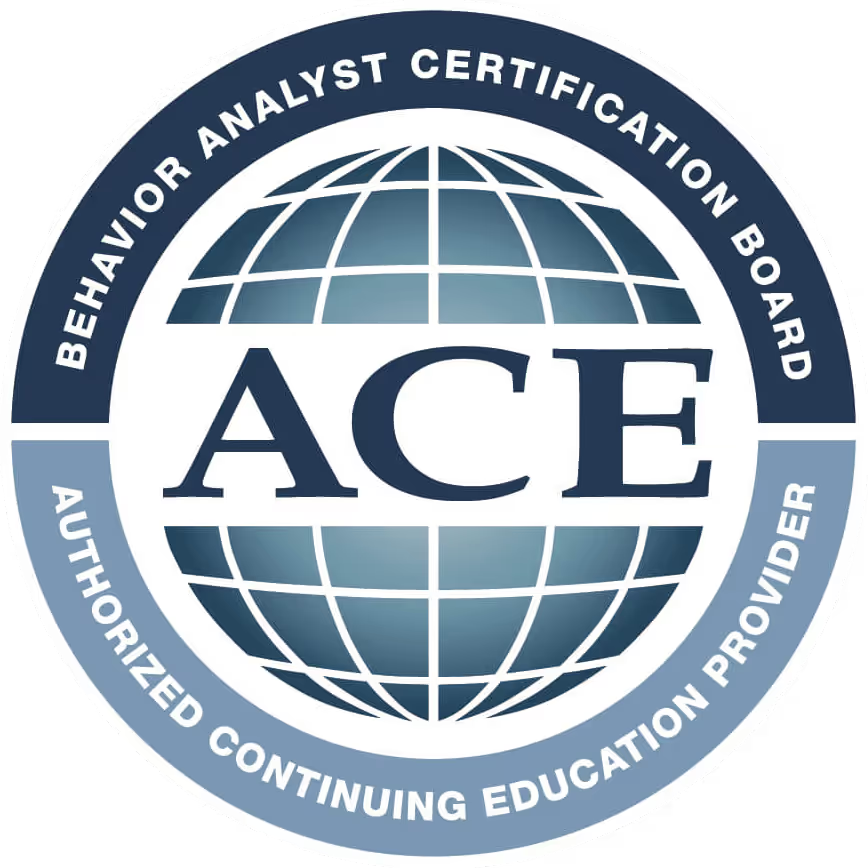
Cognitive Growth in Early Years
Understanding the Path: Key Phases of Early Cognitive Development
Introduction to Cognitive Growth
Cognitive development in early childhood represents the foundation of future learning, marking significant milestones from birth to five years. During these years, children begin to navigate the complex world around them, forming critical connections that define their abilities to think, explore, and solve problems. Understanding these developmental milestones and stages is crucial for supporting cognitive growth effectively. In this article, we delve into the intricacies of early cognitive development, from theoretical foundations to practical strategies for nurturing young minds.
Exploring the Nature of Cognitive Development
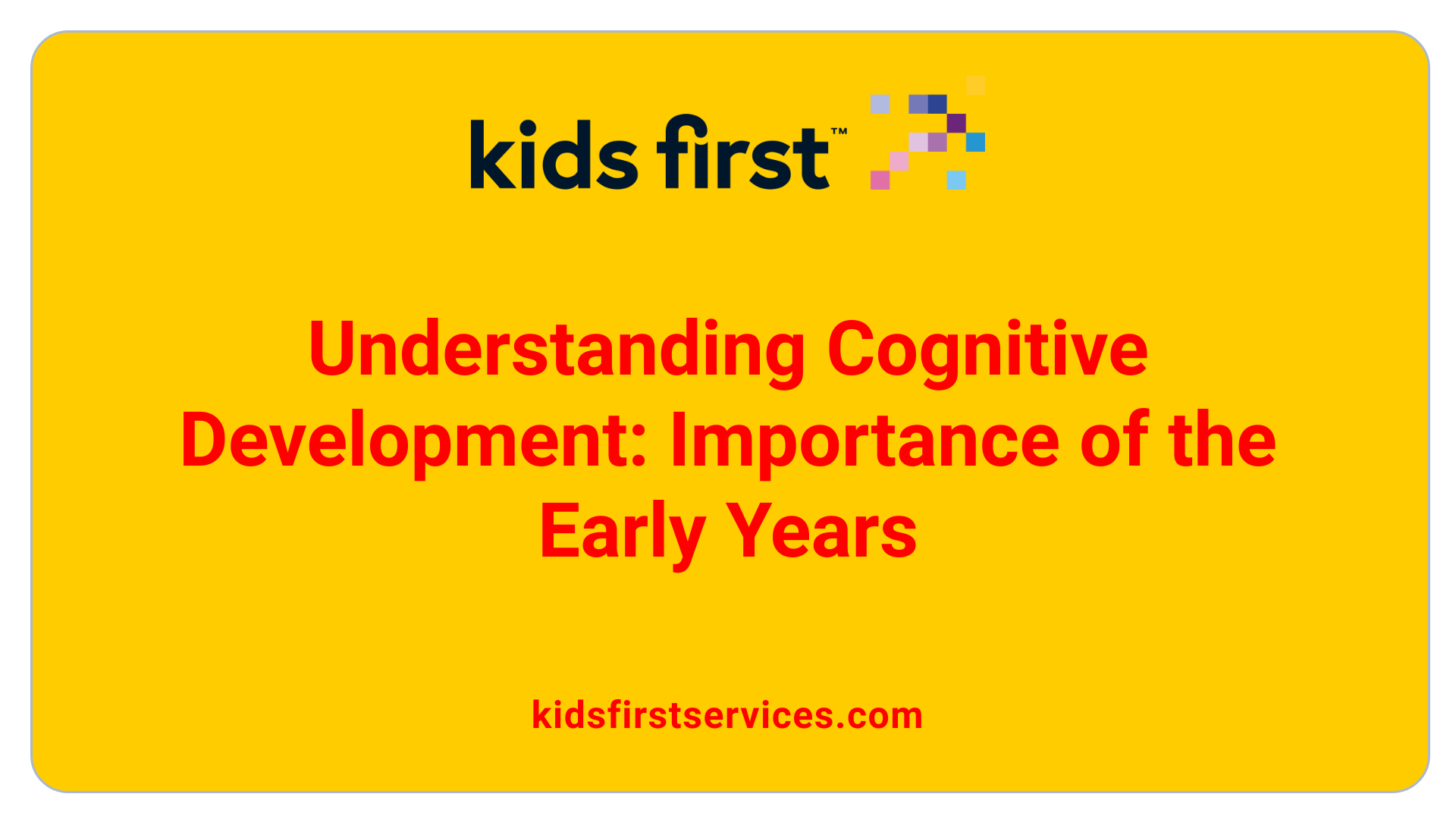
What is cognitive development in early childhood?
Cognitive development in early childhood refers to how children think, explore, and make sense of the world around them. This growth encompasses knowledge, skills, problem-solving abilities, and overall understanding, which are vital for success in school and later in life. During these formative years, children achieve numerous milestones that indicate their cognitive processing capabilities.
From birth to age five, interactions with parents and caregivers are crucial for stimulating cognitive growth. Engaging in conversations, reading books, and providing opportunities for exploration empower children to develop their thinking and reasoning skills. For instance, naming colors and shapes to toddlers or encouraging storytelling during preschool can boost cognitive abilities significantly.
Why are the early years important?
The early years are particularly significant as a child’s brain develops rapidly during this time. Research indicates that 80% of brain development occurs within the first 1,000 days of life. Activities such as sensory play, problem-solving tasks, and imaginative play are essential for nurturing cognitive skills. Children become adept at understanding cause-and-effect relationships, memory retention, and basic mathematical concepts through playful learning.
Understanding a child’s cognitive milestones helps caregivers monitor their growth. For example, by age three, children can engage in pretend play and follow multi-step instructions, indicating advanced cognitive skills. Recognizing signs of cognitive progress allows parents to support their children better and foster effective learning environments.
What role do parents and caregivers play?
Parents and caregivers play a vital role in cognitive development by offering consistent, nurturing interactions. Quality daily interactions, like talking about daily routines, singing songs, or reading stories, can significantly enhance a child's cognitive growth. Such engagement reduces stress and fosters an environment where inquiry is encouraged.
Cognitive Development Summary Table
| Age Range | Key Milestones | Activities to Promote Development |
|---|---|---|
| 0 - 3 months | Anticipatory behaviors, detecting sound differences | Talking, sensory play |
| 6 - 9 months | Longer gaze at 'impossible' events | Peek-a-boo, interacting with toys |
| 1 - 3 years | Imitation of actions, recognition of 'me' and 'you' | Pretend play, block building |
| 4 - 5 years | Asking 'why' questions, organizing by size/shape | Storytelling, pattern recognition games |
Understanding these elements of cognitive development underscores the foundational role they play in a child’s future educational and personal success.
Cognitive Milestones Development in Young Children
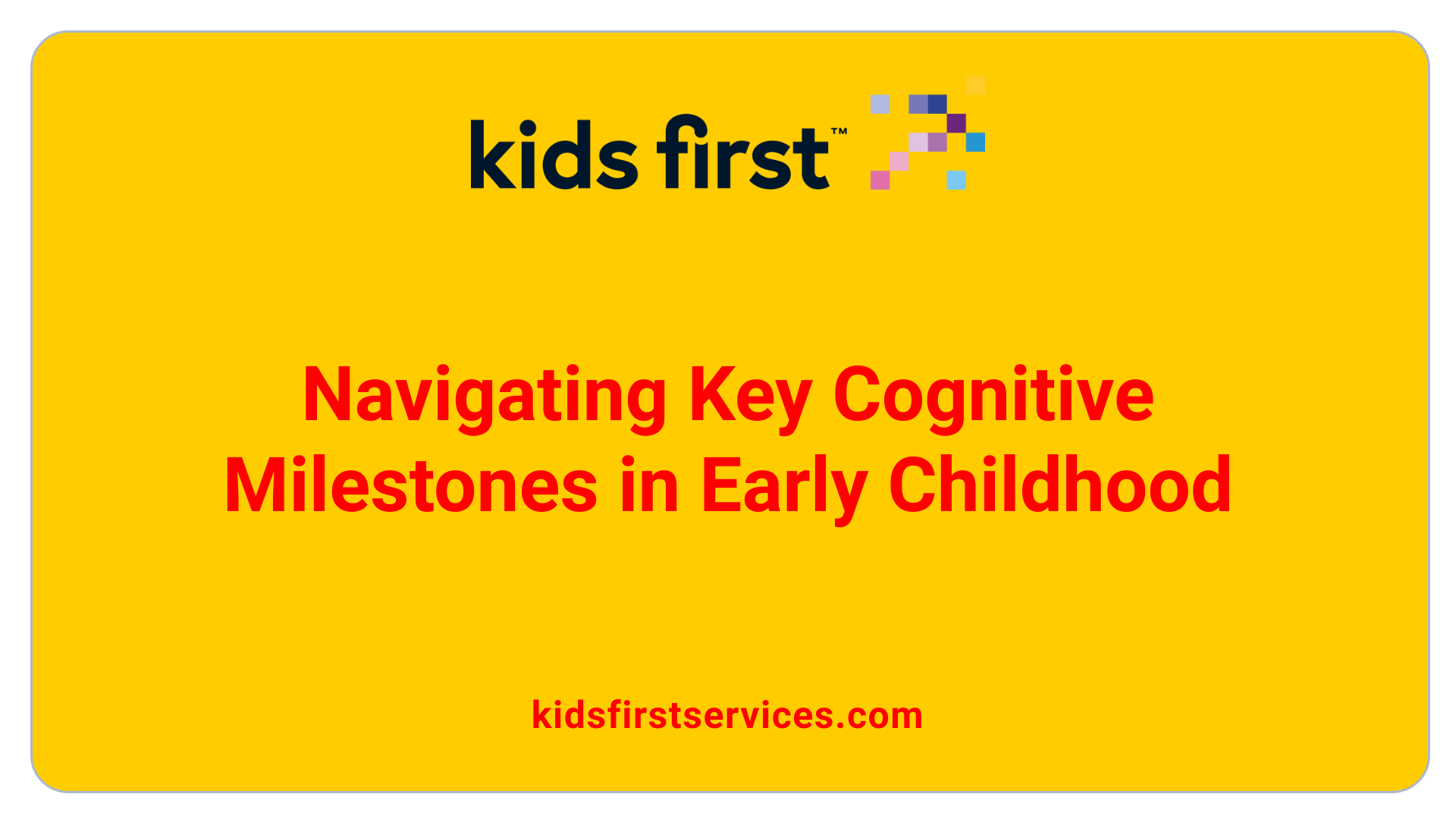
What are some examples of cognitive development in early childhood?
Cognitive development in early childhood comprises essential milestones that reflect children’s growing abilities. For instance, in the Sensorimotor stage (birth to age 2), infants master concepts like object permanence, understanding that objects exist even when they are not seen. As they transition to the Preoperational stage (ages 2-7), they begin to use symbolic thought and engage in imaginative play, although logical reasoning may still be challenging. Significant examples of cognitive development include:
- At 12 months: Recognizing and responding to basic commands.
- At 24 months: Showing early problem-solving skills by stacking objects.
- At 3 years: Using imagination in play and matching objects.
What is the role of sensory exploration?
Sensory exploration plays a crucial role in early cognitive development. Infants learn about their environment primarily through their senses—sight, sound, touch, taste, and smell. This exploration contributes to their understanding of the world, leading to skill building in areas such as:
- Imitation: Learning by observing and mimicking others.
- Memory: Retaining experiences which aids future learning.
- Problem-solving: Developing strategies to manipulate objects and understand their functions.
What activities enhance cognitive skills?
Engaging in specific activities enhances cognitive skills significantly during early childhood. Prominent effective activities include:
| Activity | Cognitive Skills Developed | Example |
|---|---|---|
| Imaginative Play | Creativity, problem-solving | Using dolls or action figures to create stories. |
| Puzzles | Spatial reasoning, pattern recognition | Solving jigsaw puzzles that require matching shapes and colors. |
| Storytime | Language, memory, comprehension | Reading interactive books that encourage children to recall details or predict outcomes. |
| Counting Games | Numeracy, cognitive flexibility | Playing board games that incorporate counting spaces or objects. |
Through these activities, children not only foster cognitive skills but also enhance their overall development, ensuring a well-rounded foundation for future learning.
The Early Beginings: Sensorimotor Stage (Birth to Age 2)
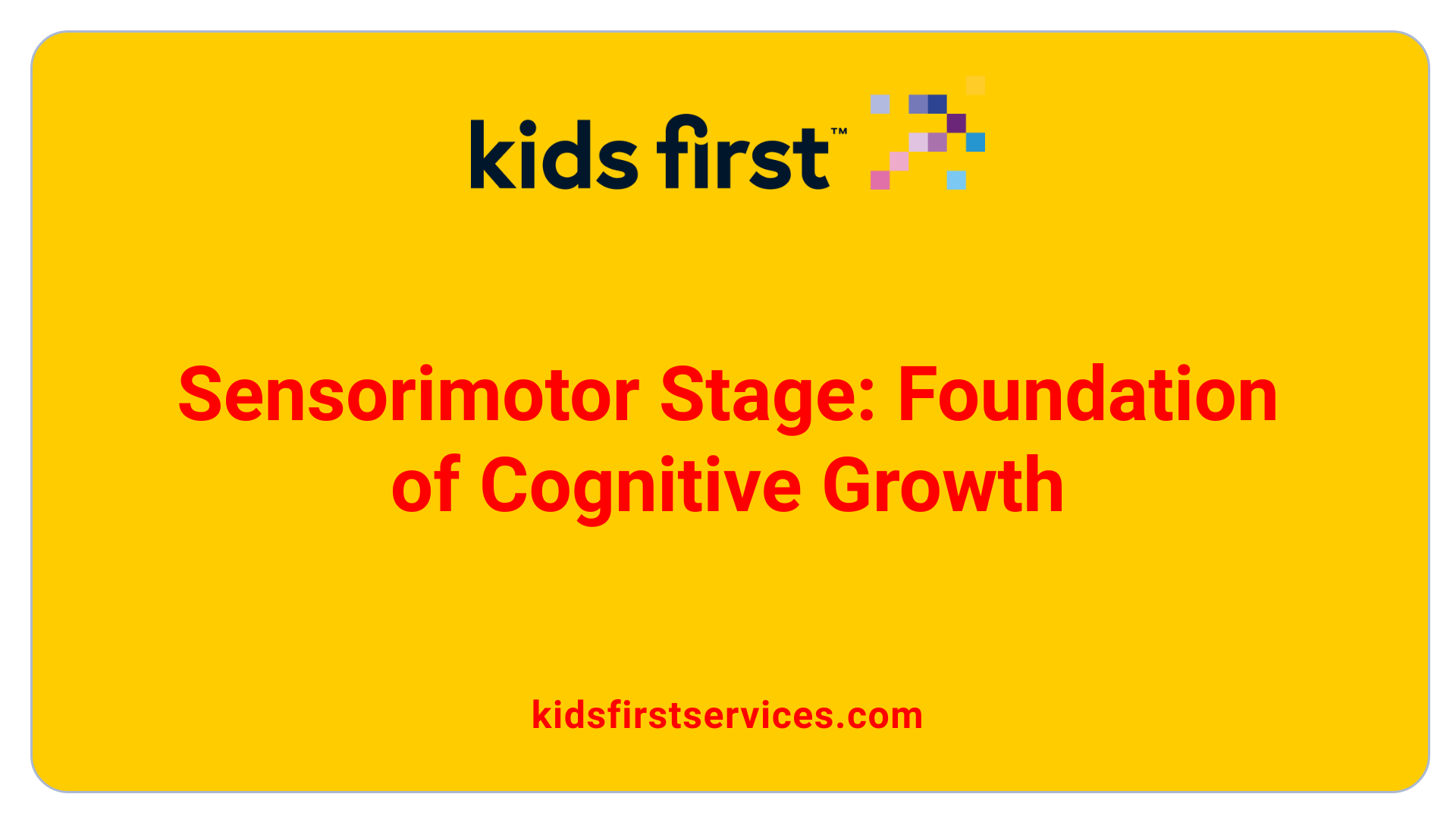
Sensorimotor Stage Milestones
The Sensorimotor stage, as outlined by Jean Piaget, spans from birth to about two years. During this period, infants undergo remarkable cognitive transformations in six distinct substages. Milestones include:
- 2 months: Follows moving objects with their eyes.
- 4 months: Opens mouth anticipating the bottle.
- 6 months: Explores objects by bringing them to their mouth.
- 9 months: Develops object permanence and looks for hidden objects.
- 12 months: Uses finger to poke and retrieve things.
- 15 months & beyond: Begins to demonstrate basic problem-solving skills and follows simple commands.
Role of Sensory and Motor Activities
Sensory experiences and motor activities play a vital role in a child's cognitive development during this stage. Infants learn to interact with their surroundings, which fosters significant neurological growth. Simple actions, such as reaching for toys or reacting to stimuli, help establish neural pathways that enhance their ability to think, reason, and problem-solve as they progress.
Important Cognitive Developments
Some crucial cognitive developments during the Sensorimotor stage include:
- Understanding Object Permanence: By around 9 months, infants learn that objects still exist even when out of sight, a foundational cognitive achievement.
- Emergence of Representational Thought: Between 18-24 months, children start using symbols and engaging in pretend play, showcasing their ability to think iconically and abstractly.
- Causality and Imitation: Infants begin to understand cause and effect relationships and can imitate actions they observe, reflecting their advancing cognitive capabilities.
Cumulatively, these cognitive skills set the stage for more complex reasoning and learning in the subsequent developmental stages.
Piaget’s Framework for Cognitive Growth
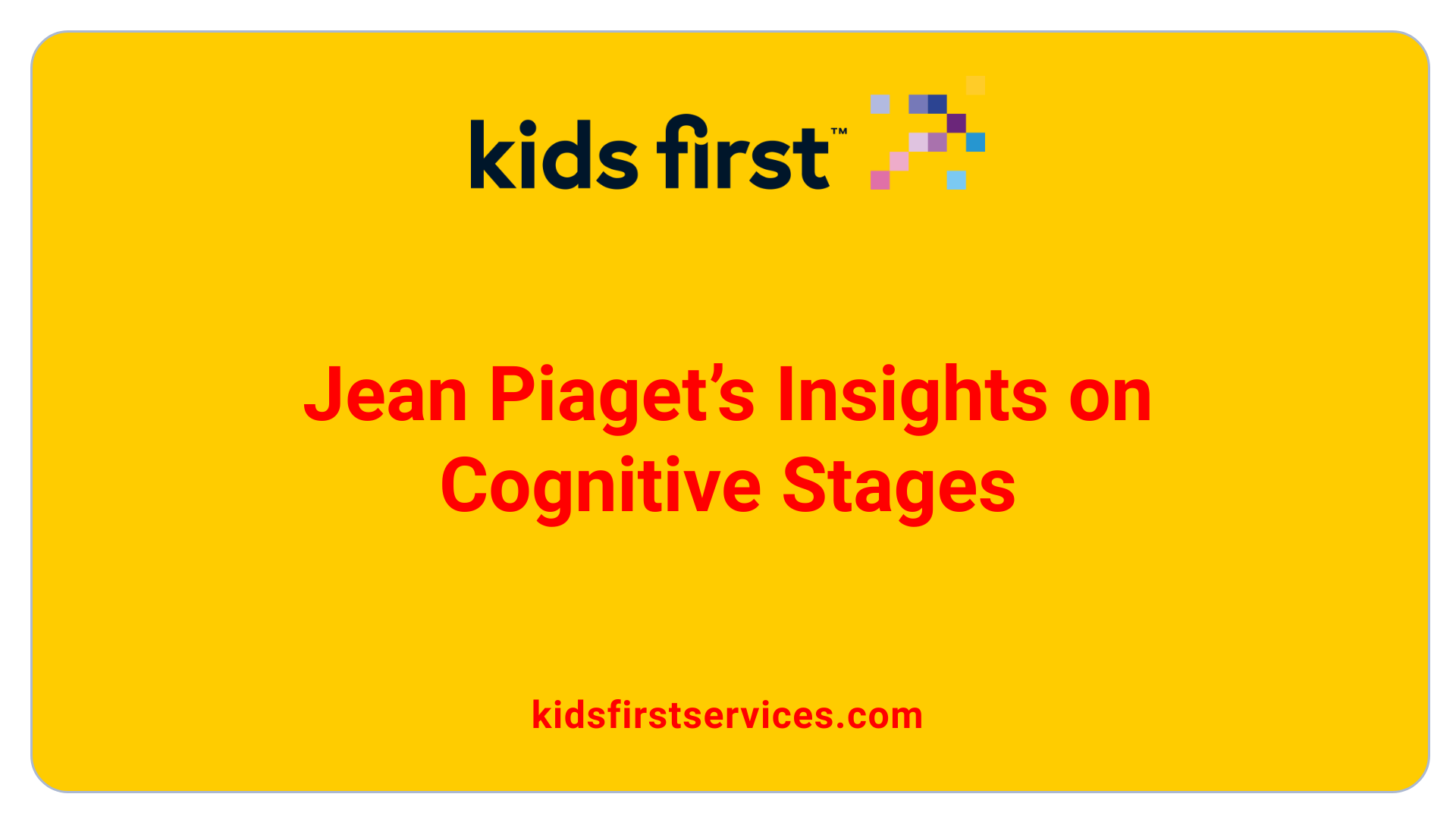
Overview of Piaget’s theory
Jean Piaget’s theory of cognitive development outlines how children progress through four distinct stages, each characterized by different ways of thinking and understanding the world. His work emphasizes that children are not passive learners; rather, they actively engage with their environment to construct knowledge.
Descriptions of cognitive stages
Sensorimotor Stage (Birth to 2 years)
- Infants learn through sensory experiences and motor activities.
- Key milestones include object permanence and cause-and-effect understanding.
Preoperational Stage (2 to 7 years)
- Children begin to use symbols and engage in imaginative play, but their reasoning is intuitive and egocentric.
- They struggle with understanding the viewpoints of others.
Concrete Operational Stage (7 to 11 years)
- Logical thinking begins, allowing children to perform operations on physical objects.
- Concepts like conservation are understood, enabling better classification and organization of information.
Formal Operational Stage (11 years and up)
- Adolescents develop the ability to think abstractly and hypothetically.
- They can engage in systematic and scientific reasoning, manipulating ideas in their minds.
Importance of each stage
Understanding these stages is crucial as they reflect cognitive processes at various ages. They determine how children learn, solve problems, and interact with their surroundings. A solid grasp of these developmental milestones helps caregivers and educators support children’s educational journeys effectively.
Cognitive Development From Ages 2 to 6
How does cognitive development advance in children aged 2 to 6 years?
Cognitive development advances rapidly in children aged 2 to 6 years as they transition into the preoperational stage, according to Jean Piaget. During this period, children engage deeply in understanding and organizing their experiences.
Key developments include:
- Language expansion: Vocabulary increases significantly, aiding communication.
- Symbolic play: Children use imagination to represent real-life scenarios through play, enhancing creativity.
- Egocentrism: Preschoolers struggle to view situations from others' perspectives.
- Numeracy and literacy: By age 5, many can count, recognize letters, and understand basic math concepts.
What is the impact of symbolic thinking on early cognitive growth?
Symbolic thinking allows children to create mental representations of objects, initiating complex thought processes. This capability supports:
- Imitative behaviors: They learn social rules through role-play.
- Problem-solving: Children start to form strategies to tackle simple challenges.
- Storytelling: Makes it easier for them to express ideas and understand narratives.
What is the role of caregivers in cognitive development?
Caregivers play a vital role in supporting cognitive growth:
- Interactive engagement: Engaging with children through conversations, storytelling, and games.
- Responsive communication: Encouraging exploration while providing a safe environment.
- Mutual learning: Children learn more effectively when caregivers model behaviors and storytelling.
Through these enriched interactions, caregivers can significantly enhance children's cognitive milestones, preparing them for future learning.
Advancing Skills in Preschoolers
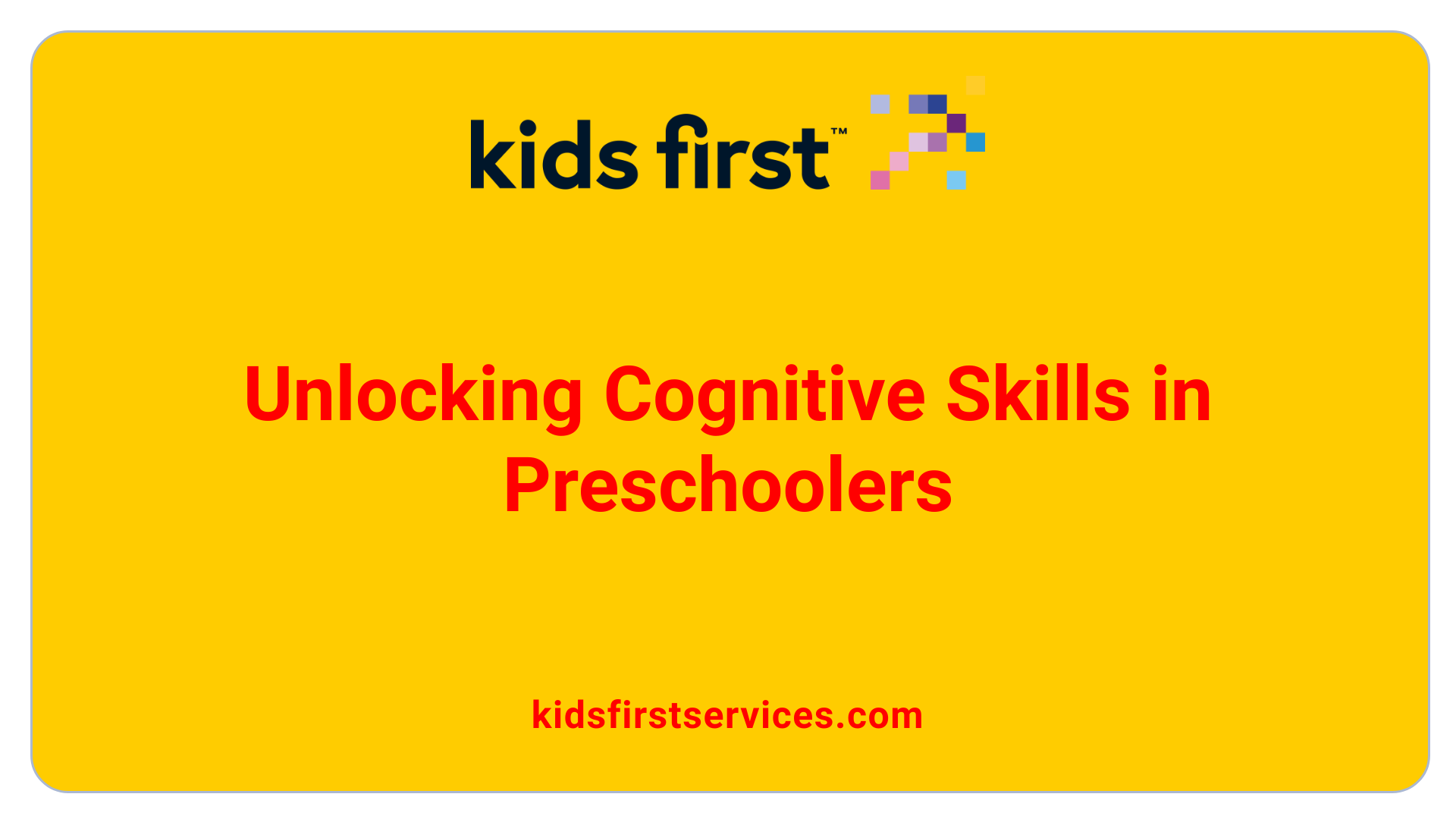
What cognitive skills emerge in children aged 3 to 4 years?
Children aged 3 to 4 years experience significant cognitive development. They begin to correctly name colors and understand basic counting concepts, laying the foundation for early numeracy skills. Their ability to follow multi-step commands shows improvement in memory and processing abilities, indicating a growing cognitive complexity.
At this stage, children engage in imaginative play, which is essential for fostering creativity and problem-solving. This type of play allows them to explore different scenarios and roles, enhancing not only their cognitive but also their social skills.
Additionally, children start to grasp basic concepts of time, indicating their cognitive advancement in understanding sequences of events. They can categorize objects based on their intended use, showcasing their ability to classify and compare effectively. This age marks significant growth in language skills, memory, and overall cognitive abilities, as they actively explore and make sense of the world around them.
Development of problem-solving abilities
Problem-solving abilities become more pronounced during this period. Children often tackle simple challenges, such as building structures with blocks or figuring out how to complete a puzzle. These activities not only provide enjoyment but also stimulate logical thinking and reasoning skills.
As they play, children frequently experiment with different outcomes, learning what works and what doesn’t. This trial-and-error approach fosters resilience, as they learn to navigate obstacles creatively.
Importance of imaginative play
Imaginative play is crucial in nurturing various cognitive skills. Through role-playing and storytelling, children enhance their ability to understand different perspectives. This freedom allows children to express their thoughts and ideas without restriction, leading to a surge in language skills and cognitive flexibility.
Furthermore, imaginative scenarios encourage collaborative play, as children negotiate roles and share ideas. This social interaction is vital for cognitive and emotional development, promoting skills such as compromise and empathy, which are essential as they grow.
Growth and Learning in Early School Years
What cognitive changes occur during the early school years?
During the early school years, children aged 5-8 undergo transformative cognitive changes. One of the most notable shifts is their expanded capacity for empathy, which allows them to understand others' feelings and perspectives better. Imaginative thinking flourishes alongside enhanced problem-solving skills, enabling them to tackle challenges in more sophisticated ways.
Children start grasping complex concepts such as fractions, money, and telling time. Their attentiveness improves, with longer attention spans aiding in sustained focus during tasks. According to Jean Piaget’s theory, kids enter the concrete operational stage around age 7. This stage is marked by an ability to think logically, understand cause and effect, and develop inductive reasoning skills.
As cognitive skills develop, language abilities also grow, allowing children to communicate needs and ideas effectively. This period sets the groundwork for higher academic learning and social engagement, showcasing the interconnectedness of cognitive growth with overall child development.
How does cognitive development impact social interactions?
Cognitive development critically affects social interactions. As children enhance their understanding of complex concepts, they become better at reading social cues and understanding context. The development of empathy allows them to relate more to peers, facilitating friendships and cooperative play. Moreover, their expanding language skills enable clearer communication, helping to resolve conflicts and express emotions appropriately.
With improved cognitive abilities, children can engage in more sophisticated forms of play, such as role-playing and collaborative storytelling, which further strengthens their social skills. Overall, fostering cognitive growth directly contributes to healthier social interactions in the crucial early years of schooling.
What is the role of guided learning in cognitive growth?
Guided learning plays a pivotal role in supporting cognitive development during these early school years. Structured educational environments provide opportunities for children to explore new concepts and practice skills with the assistance of knowledgeable educators.
Through interactive activities like group learning, storytelling, and problem-solving tasks, children benefit from feedback and scaffolding that cater to their developing skills. Engaging in hands-on activities, such as science experiments or group games, fosters critical thinking and cognitive flexibility, encouraging children to inquire, hypothesize, and draw conclusions.
Below is a summary table encapsulating key aspects of cognitive changes during early school years:
| Age Range | Key Cognitive Changes | Social Interaction Enhancements | Role of Guided Learning |
|---|---|---|---|
| 5-6 | Improved language skills, empathy | Better peer interactions | Structured play and group activities |
| 7-8 | Mastery of complex concepts | Enhanced conflict resolution | Teacher-led interactions and feedback |
Supporting Cognitive Development Through Activities
Effective Cognitive Development Activities
Promoting cognitive development in young children can be effectively achieved through a variety of interactive activities. Engaging in nursery rhymes, puzzles, and play-based learning with blocks and sorting toys significantly enhances problem-solving, reasoning, and memory skills. Parents and educators can incorporate cooking activities, which not only allow for practice in measuring and following instructions but also support language development through the introduction of new vocabulary.
Role of Pretend Play and Games
Pretend play is vital for cognitive development as it allows children to use their imagination and represent real-life scenarios. Playing games, such as those involving numbers or sequencing, fosters critical thinking. Activities like musical games help improve pattern recognition and mathematical skills through rhythm and repetition, reinforcing cognitive growth.
Interaction Strategies for Parents and Educators
Quality interactions are paramount in fostering cognitive skills. Parents and educators should talk to children frequently, engage them with questions, read together, and allow opportunities for exploration. Demonstrating enthusiasm during learning activities encourages children to think critically and independently, increasing their understanding of the world around them.
These strategies support self-reliance and decision-making abilities while laying a solid foundation for lifelong learning.
Ensuring a Bright Future Through Early Cognitive Development
The early years of a child's life are a pivotal period for cognitive development, establishing a foundation for lifelong learning and success. By understanding the stages and milestones of cognitive growth, parents, educators, and caregivers can effectively support and nurture children's developing minds. Encouraging exploration, providing stimulating activities, and fostering a rich interactive environment can significantly enhance young children's cognitive abilities, preparing them for the complexities of future education and social interactions. As the brain rapidly develops during these formative years, ensuring that children receive the support they need is crucial for cultivating their potential and ensuring a bright future.
References
- Cognitive Developmental Milestones - Verywell Mind
- Cognitive Development - StatPearls - NCBI Bookshelf
- The Importance of Cognitive Development and How Early ...
- Cognitive Development in Early Childhood - Blog - Upskillist
- A Guide to Cognitive Development Milestones in Early Childhood
- FWhat Is Cognitive Development | Help Me Grow MN
- Cognitive Development in Early Childhood: Ages 0 to 3
- Cognitive Development in Children | Advice for Parents
- 15 Best Cognitive Development Activities In Early Childhood
- Cognitive Development in Childhood: Milestones & Stages



